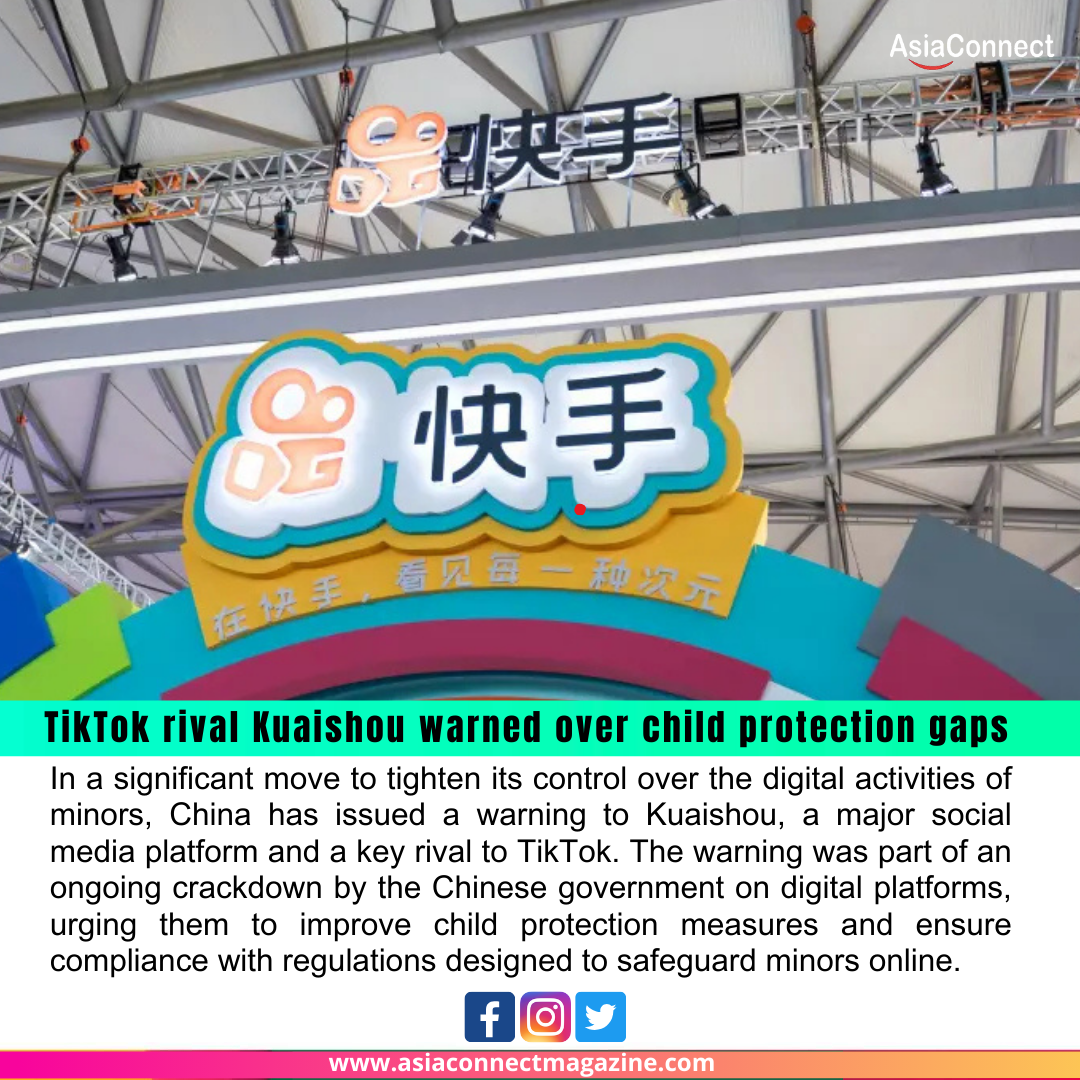In a significant move to tighten its control over the digital activities of minors, China has issued a warning to Kuaishou, a major social media platform and a key rival to TikTok. The warning was part of an ongoing crackdown by the Chinese government on digital platforms, urging them to improve child protection measures and ensure compliance with regulations designed to safeguard minors online.
China’s Effort to Safeguard Minors in the Digital Age
The warning to Kuaishou is part of a broader effort by the Chinese government to address the rising concerns about the impact of digital platforms on children and teenagers. With an increasing number of minors spending significant time online, especially on social media apps, the Chinese government has taken an active stance in regulating how these platforms interact with younger users.
The government has introduced various measures in recent years to reduce the time minors spend on digital platforms and to ensure that their online activities are better monitored. This includes restrictions on gaming hours, limiting the amount of time minors can spend on apps like TikTok, and requiring platforms to implement stricter content moderation systems that protect children from inappropriate material or online exploitation.
Kuaishou, which operates a short-video platform similar to TikTok, is under scrutiny as part of this initiative. As the app continues to grow in popularity in China and internationally, the government has emphasized that platforms like Kuaishou must take greater responsibility in safeguarding their younger users from harmful content and ensuring that they are not exploited online.
Issues with Kuaishou’s Child Protection Practices
The warning issued to Kuaishou highlighted specific gaps in the company’s child protection practices. Chinese regulators pointed out that the platform’s current measures were insufficient to prevent minors from accessing harmful or inappropriate content, and there were concerns over the platform’s ability to adequately verify the age of its users. This has raised alarms about the potential for minors to engage with content that may be detrimental to their mental health or lead to dangerous behavior.
Kuaishou, which has millions of active users, is expected to respond to these concerns by implementing more robust child protection measures. These measures could include enhanced user verification protocols to ensure that minors are appropriately restricted from certain types of content, as well as better monitoring and control over how young users engage with the platform. The Chinese government has also recommended that Kuaishou introduce new features aimed at limiting screen time for minors, such as automatic cut-off times or usage tracking tools that alert parents to their children’s online activity.
The Bigger Picture: China’s Digital Regulation Push
The warning to Kuaishou is not an isolated incident but rather part of a broader government effort to strengthen its regulation of online platforms, particularly those that are popular with children and teenagers. In 2021, China implemented the “minor protection law,” which placed stricter controls on how digital platforms could interact with minors. This law requires platforms to introduce age-appropriate content, implement stronger content review processes, and ensure better protection for minors in online spaces.
Moreover, there has been increasing concern over the mental health impacts of prolonged screen time, online gaming addiction, and exposure to inappropriate or harmful content. The Chinese government has also limited the hours minors can spend playing online games, a move that reflects its broader strategy to protect children from the potential negative effects of excessive screen use.
Moving Forward: What This Means for Kuaishou and the Industry
For Kuaishou, the warning is a reminder of the growing regulatory scrutiny it faces as it expands. While the platform is already taking steps to enhance its child protection policies, the government’s demand for tighter oversight will likely push the company to develop even more comprehensive safeguards for its younger user base.
For the broader digital landscape, this warning signals that China is committed to enforcing its digital regulations and that tech companies must prioritize the well-being of minors in their business strategies. As part of this ongoing digital regulation effort, it is likely that other platforms, both local and international, will face similar scrutiny, particularly if they cater to young users or promote interactive content such as gaming and social media.
In conclusion, Kuaishou’s warning underscores the growing global conversation about child protection in the digital age. As digital platforms become an integral part of everyday life, ensuring the safety of younger users remains a priority for governments and companies alike. For Kuaishou and its peers, navigating these regulatory frameworks will be crucial in maintaining user trust and regulatory compliance.





